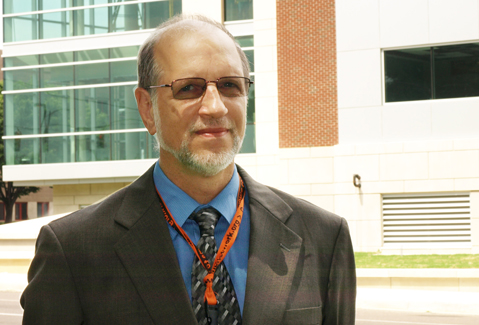
Professor Robert W. Williams, PhD, UT-ORNL Governor’s Chair in Computational Genomics, Appointed Founding Chair of GGI
David M. Stern, MD, executive dean of the University of Tennessee Health Science Center (UTHSC) College of Medicine, has announced the formation of a new department on the Memphis campus, the Department of Genetics, Genomics and Informatics (GGI). Professor Robert W. Williams, PhD, the UT-ORNL Governor’s Chair in Computational Genomics, will serve as the department’s founding chair. GGI will focus on three areas of biomedical research:
- Genetics, with a focus on the causes of variation in disease risk in humans — both genes and the environment;
- Genomics, defined broadly to include many types of research questions and high throughput molecular approaches including DNA sequencing; and
- Informatics, defined to include bioinformatics and clinical health informatics.
Starting with five core faculty with primary appointments, the plan is to grow by offering joint appointments to faculty in many other departments, colleges, campuses and institutions — including St. Jude Children’s Research Hospital and the University of Memphis.
“The department will function as a cross-disciplinary, interdepartmental and intercollegiate unit. GGI will serve as a catalyst for both research and teaching initiatives.” David M. Stern, MD
A faculty member in the UTHSC Department of Anatomy and Neurobiology for 25 years, Dr. Williams is a renowned experimental neurogeneticist, founder of the Complex Trait Consortium, and editor-in-chief of Frontiers in Neurogenomics. His current research is funded by three NIH institutes, the National Institute on Aging, the National Institute on Alcohol Abuse and Alcoholism, and the National Institute on Mental Health, as well as by the Oak Ridge National Laboratory. “One of the main purposes in creating this new department is to strengthen and consolidate gains UTHSC has made in genetics over the past 15 years,” Dr. Stern said. “The department will function as a cross-disciplinary, interdepartmental and intercollegiate unit. GGI will serve as a catalyst for both research and teaching initiatives.” “Forming this department significantly improves our research prospects in the next wave of human genetics, while building on strengths in experimental, molecular, and quantitative genetics,” Dr. Williams said. “An important mission of the department will be to enhance the genetics components of already strong research and clinical programs across the state.”
